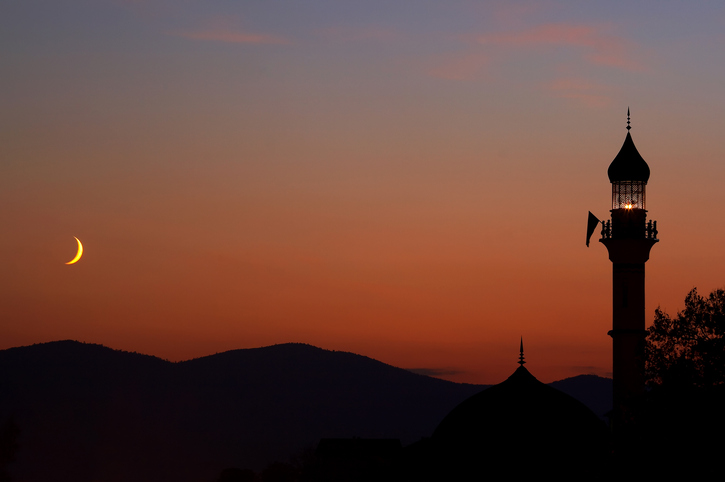Between this past June 5 and June 7, the Islamic holy month of Ramadan began for 1.3 billion people around the world. During Ramadan, Muslims abstain from eating and drinking from dawn to sunset. The first day of the following month, Shawwal, marks the beginning of Eid al-Fitr, one of Islam’s most important religious holidays. Some will begin to celebrate Eid al-Fitr on July 4, while others will wait until July 7. In 2015, Ramadan was observed from mid June to mid July.
While these months and days may seem imprecise, they actually are observed with great precision.
Much of the world uses the Gregorian calendar, which was originally created in 1582 to ensure that the Christian holiday of Easter occurred near the Northern Hemisphere’s solar vernal equinox. However, the Islamic calendar is a lunar calendar, and the lunar cycle is approximately 29.5 days long. As a result, lunar months seem to “move” backward about ten days each year when they are compared to the Gregorian calendar. This is why observation of Ramadan takes place earlier in 2016 than it did in 2015, and why holidays and observances in the Islamic calendar do not have any climate or seasonal connotations.
New months begin in the Islamic calendar with the appearance of the hilal, the slender crescent moon which follows the new moon. What constitutes an appearance of hilal, however, can vary. In most predominately Islam countries, hilal must be observed with human eyesight, and these sightings are then certified by a court. However, there are Muslims who believe that mathematical and scientific calculation should be used to determine hilal, as geography, weather, and other factors can interfere with visual confirmation.
This past May, after years of research, a board of Islamic scholars and scientists created and proposed a global Islamic calendar. The calendar will be referred to the Organization of Islamic Cooperation (OIC), the group of 57 predominately Islam countries, to determine if it will be officially adopted.
While the Islamic calendar will never be identical to the Gregorian calendar, there is a possibility that Muslims around the world will observe the beginning of a new month in a unified way.
(For more information about the month of Ramadan, visit this Living Abroad blog post from 2013: https://www.livingabroad.com/a-time-of-observances/ )


